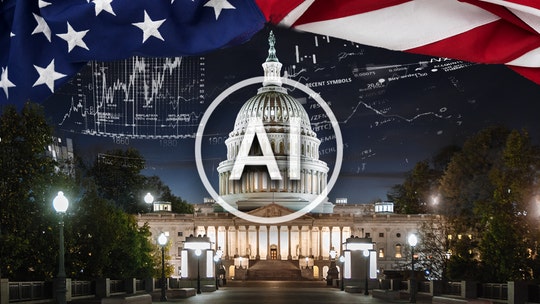China's efforts to control artificial intelligence (AI) models reflect a broader threat to global discourse and freedom of information. The Chinese Communist Party (CCP) is implementing regulations to ensure that AI aligns with its ideological values, raising concerns about the potential for manipulation and surveillance both within and beyond China's borders.
China's relentless pursuit of censorship and surveillance has extended to the realm of artificial intelligence (AI), signaling a broader threat to global discourse and freedom of information. The Chinese Communist Party (CCP), eager to advance the rapidly evolving technology, has introduced strict regulations to ensure that AI models adhere to its ideological principles.
All AI firms operating in China are now required to participate in a government review that meticulously examines their large language models (LLMs) to guarantee their alignment with "core socialist values." This move, first reported by the Financial Times, represents an extension of the CCP's stringent control over internet content, known as the "Great Firewall."

China Extends Censorship to AI, Signaling Broader Threat
The CCP has long employed the Great Firewall to suppress information it deems detrimental to its interests, blocking access to sensitive topics such as the Tiananmen Square massacre and references to President Xi Jinping as Winnie the Pooh. This censorship apparatus is now being extended to the AI landscape, as China strives to balance technological advancement with ideological conformity.
The Cyberspace Administration of China (CAC) is tasked with overseeing the review process, requiring AI companies like ByteDance, Moonshot, and 01.AI to demonstrate the effectiveness of their programs in filtering and blocking sensitive content. Chatbot systems are being developed to automatically detect and suppress information related to banned topics, including queries on human rights and political dissent.

China Extends Censorship to AI, Signaling Broader Threat
However, the CAC's policies stipulate that LLMs should not reject more than 5% of all questions to prevent excessive censorship. Consequently, developers face the challenge of crafting politically correct blanket responses to specific types of queries, an ongoing struggle for AI engineers.
China's relentless pursuit of narrative control within its borders underscores a greater threat, according to AI expert Arthur Herman, senior fellow and director of the Quantum Alliance Initiative with the Hudson Institute. Herman warns that this approach may extend beyond China's borders, as the country strengthens its ties with the global south, where platforms like WeChat have gained popularity.

China Extends Censorship to AI, Signaling Broader Threat
"There will inevitably be a social control, a mind control, element that goes into those programs… and to shape a world that looks more and more like China wants it to look," Herman asserts. He further cautions that these strategies are not confined to authoritarian nations but are accessible wherever these platforms operate, including the United States.
Herman highlights the addictive nature of TikTok, developed by Chinese engineers, and its potential for subtle brainwashing. "They have mastered the art of brainwashing through TikTok," Herman says, explaining that TikTok's algorithms cleverly shape users' perceptions and responses to visual and audio stimuli.

China Extends Censorship to AI, Signaling Broader Threat
According to Herman, China's exploitation of AI applications for psychological manipulation is merely a "foretaste" of its broader capabilities. "China sees AI as a means by which to change people's minds," he states. "AI's ability to enhance those kinds of brainwashing and mind control applications is so powerful…that even when you're not actually under a surveillance camera, even when you're not actually listening to or watching government-inspired propaganda… there are other subtler ways in which your mind is being changed and adjusted simply by your interaction with things that are taking place in daily life — which are more and more directed by how the Communist Party wants you to see the world."
As China's technological prowess grows, the international community must remain vigilant in safeguarding freedom of expression and preventing the spread of authoritarian digital control. The extension of censorship to AI models serves as a stark reminder of the threats posed by unchecked government surveillance and manipulation.










